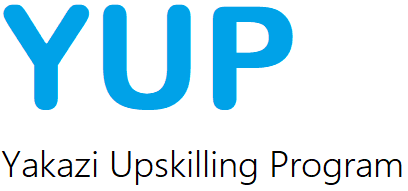How Recognition of Prior Learning (RPL) Works in the Kenyan Market

Recognition of Prior Learning (RPL) is a process that acknowledges and validates the skills, knowledge, and competencies an individual has acquired through informal or non-formal learning, typically outside of the formal education system. In Kenya, RPL serves as a vital tool to bridge the gap between education and employment, helping individuals gain recognition for their experiences and increase their employability in a competitive job market.
RPL is a crucial component in various sectors, including education, vocational training, and employment. It allows people to convert their practical skills into formal qualifications, often through assessments that determine their competence in a particular field. This process is particularly important in Kenya, where many individuals possess skills gained from years of on-the-job experience, but lack formal certifications. By recognizing these competencies, RPL helps them access better job opportunities, promotions, or further training that would otherwise be out of reach.
In the Kenyan context, the importance of RPL is growing as the country aims to address its unemployment challenge. Many job seekers struggle to find employment because they do not have formal qualifications, even though they possess the necessary skills for the job. RPL can help change this by creating a more inclusive and equitable pathway for individuals to enter the formal labor market.
For instance, a person with years of experience in construction management may not hold a degree but can demonstrate practical knowledge and leadership in the field. Through the RPL process, such an individual can have their competencies formally recognized, potentially gaining a qualification or certification that opens doors to higher-paying jobs or career advancement.
Connecting RPL with Job Opportunities
Organizations like Yakazi, which connect job seekers with employers, play a significant role in facilitating this process. They not only assist individuals in finding jobs but also provide services such as CV revamping, coaching, and interview skills. These services complement RPL by ensuring that job seekers present their skills and experience in the most effective way to potential employers.
Through RPL, job seekers are empowered to highlight their expertise beyond academic qualifications, which is a significant advantage in today’s competitive job market. Platforms like Yakazi help bridge the gap by ensuring individuals know how to market their competencies, whether acquired informally through work or volunteer experiences. By offering tailored coaching and resume services, Yakazi helps candidates present themselves as skilled and qualified, increasing their chances of securing job opportunities that might have previously seemed out of reach.
Incorporating RPL into the hiring process can also benefit employers. By recognizing the value of prior learning, employers can tap into a diverse talent pool that includes individuals who may not have formal academic qualifications but possess valuable skills gained through experience. This approach helps employers build a more dynamic and skilled workforce.
In conclusion, the recognition of prior learning is an essential step toward creating a more inclusive workforce in Kenya. It allows individuals to convert their informal learning into formal qualifications, thereby improving their job prospects. With organizations like Yakazi helping to connect job seekers with employers, promote skill development, and provide essential job application support, the impact of RPL can be amplified, leading to a more robust and competitive job market. Through the formal recognition of experience, RPL is helping to break down barriers and ensuring that opportunities are available to a wider pool of candidates.

